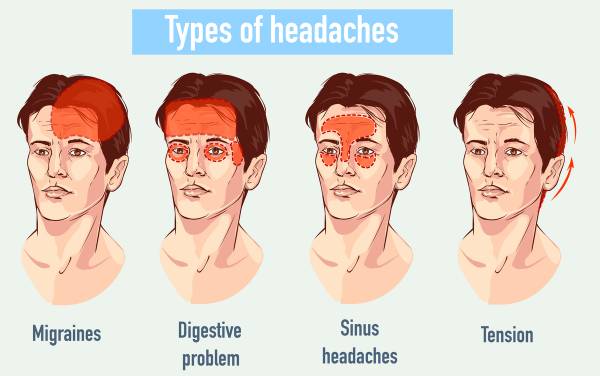Click to enlarge
Well, technically it’s a lack of vitamin D that’s causing the problem. Vitamin D is, as its name suggests, a vital amine, one that plays many important roles in your health. Vitamin D’s primary role is to keep your blood levels of phosphorus and calcium normal. Calcium is needed for burning fat, repairing your bones, and keep your skeletal system strong. It also plays a role in your cardiovascular health, immune function, mood, and even your weight.
Now, according to a new study, a lack of vitamin D may be the reason you’re getting headaches. Researchers with the Kuopio Ischaemic Heart Disease Risk Factor Study examined the effects of vitamin D insufficiency on roughly 2,600 men in their 40s, 50s, and 60s. In 68% of the men, serum Vitamin D levels were below the deficiency threshold of 50 nmol/L. 250 of the men also reported chronic headaches.
Of the men reporting headaches, the majority had lower than normal vitamin D levels. The group with the lowest levels of vitamin D had twice the risk of chronic headaches than the group with the highest vitamin D levels. This was especially true from October through May, the months when we tend to spend more time indoors, away from the Vitamin D-providing sunlight.

This is just one more study that proves how important vitamin D is. Previous studies have linked vitamin D deficiencies with an increased risk of chronic diseases, so this isn’t a shock for researchers examining the importance of vitamin D.
The good news is that keeping your vitamin D levels above deficient is surprisingly easy. Vitamin D is called the sunlight vitamin due to the simple fact that it’s produced as a result of the UVB rays in sunlight. By spending just 30 minutes a day in direct sunlight, you can get all the vitamin D your body needs.
Of course, fortified cereals and grains are an excellent alternative for vitamin D. Enriched milk and dairy products can increase your vitamin D intake. Both of these foods are highly recommended during the winter months when it may be too cold to spend a lot of time outdoors, or there is less time in the day to get sunlight.
Whatever the case, the results are clear: a lack of vitamin D may very well be the reason for your chronic headaches. Spending a bit more time relaxing in the sunlight can do wonders for the pounding in your head.
References:
1. Jyrki K. Virtanen, Rashid Giniatullin, Pekka Mäntyselkä, Sari Voutilainen, Tarja Nurmi, Jaakko Mursu, Jussi Kauhanen, Tomi-Pekka Tuomainen, “Low serum 25-hydroxyvitamin D is associated with higher risk of frequent headache in middle-aged and older men,” Scientific Reports, doi: 10.1038/srep39697, published online 3 January 2016.
2. “Vitamin D and chronic disease prevention,” BMJ 2014; 348 doi: published 01 April 2014.






